Alienation in Simon and Garfunkel’s Music
As a result, therefore, man (the worker) only feels himself freely active in his animal functions – eating, drinking, procreating, or at most in his dwelling and in dressing-up, etc.; and in his human functions he no longer feels himself to be anything but an animal. What is animal becomes human and what is human becomes animal – Karl Marx , The Economic and Philosophical Manuscripts of 1844 1
Simon and Garfunkel’s The Sound of Silence has been identified as a denunciation of materialism 2 as well as an examination of superficial communication 3 in an age of highly efficient technology. This article attempts to prove that alienation 4 is a significant theme in Simon and Garfunkel’s work and not just in this particular song. Songs such as The Boxer ,The Sound of Silence , a will be examined in a textual manner for this purpose.

Solitude and the Spring of Silence
Hello darkness, my old friend
I’ve come to talk with you again
Because a vision softly creeping
Left its seeds while I was sleeping
And the vision that was planted in my brain
Still remains
Within the sound of silenceIn restless dreams I walked alone
Narrow streets of cobblestone
‘Neath the halo of a street lamp
I turned my collar to the cold and damp
When my eyes were stabbed by the flash of a neon light
That split the night
And touched the sound of silence
The narrator appears to be talking to confusion personified :Darkness. By referring to the immaterial phenomena of darkness as his friend, he implies that he is in actuality friendless. Why is he friendless ? Because he can see beyond the mundane workaday world; into the World of Forms 5 to evoke Plato. He travels alone down the cold concrete jungles that become our cities as if he were a cursed spirit, trying to shore up against the cold solitude that the world has gifted him as his birthright. The solitary traveler is drawn as a fly to the flame by the neon lights which are both the object of his desire as well as the cause of his suffering .
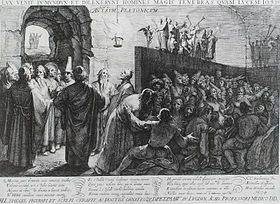
And in the naked light I saw
Ten thousand people, maybe more
People talking without speaking
People hearing without listening
People writing songs that voices never share
No one dared
Disturb the sound of silence“Fools” said I, “You do not know
Silence like a cancer grows
Hear my words that I might teach you
Take my arms that I might reach you”
But my words like silent raindrops fell
And echoed in the wells of silence
The silence that pervades the narrative is the product of estrangement or alienation. Just as the commercial spirit has estranged the producer from the product 6, it also alienates human beings from each other. The homo economicus is so self-absorbed that he can no longer connect with his competitor. Just as the free man is misunderstood by the cave-dwellers 7, his isolation is a function of his perception.
And the people bowed and prayed
To the neon god they made
And the sign flashed out its warning
In the words that it was forming
And the sign said, “The words of the prophets
Are written on the subway walls
And tenement halls”
And whispered in the sounds of silence
Unable to differentiate between the real and unnecessary,the masses succumb to commodity worship. In replacing the divine with the material, the choice between Mammon and God has already been made. Echoing Macruse’s critique of mass-consumption society people are chained to a state of unfreedom 8 under the crass exhibitionism of “neon” consumerism. Yet ,the mass-consumption society with it’s marginalization of the lumpen and minorities creates for itself it’s own grave diggers. It is the non-alienated tenant-dweller and the destitute who shall revolutionize the system and not the proletariat.
The Boxer and Marginalization
How could the industrial working class, long considered by Marx to be the agents of revolutionary change be neutralised this effectively ? According to Louis Althusser and even Antonio Gramsci 9 these operate through control of both coercive as well as instructional institutions.
I am just a poor boy
Though my story’s seldom told
I have squandered my resistance
For a pocket full of mumbles, such are promises
All lies and jests
Still a man hears what he wants to hear
And disregards the rest
When I left my home and my family
I was no more than a boy
In the company of strangers
In the quiet of the railway station
Running scared,
Laying low, seeking out the poorer quarters
Where the ragged people go
Looking for the places
Only they would know
The narrator in this song appears to be a young man who is living on the margin suffering from physical and social isolation. He’s been brought into the city by false promises (reminding us of Marx’ false consciousness 10) and tries to escape from his social reality, but his misery is insurmountable.
Asking only workman’s wages
I come looking for a job
But I get no offers
Just a come-on from the whores
On Seventh Avenue
I do declare
There were times when I was so lonesome
I took some comfort there, le le le le le le le
Then I’m laying out my winter clothes
And wishing I was gone
Going home
Where the New York City wintersAren’t bleeding me
Leading me
Going home
The pathetic economic situation denies him the comfort of a steady job, leaving him to fend for himself on the streets of chilly New York , reminding the reader of O Henry’s story 11. Here, he reaches the epitome of his estrangement, when quenches his thirst for company by partaking of commodified sex; the very image of commodities replacing humans 12.
In the clearing stands a boxer
And a fighter by his trade
And he carries the reminders
Of ev’ry glove that laid him down
Or cut him till he cried out
In his anger and his shame
“I am leaving, I am leaving”
But the fighter still remains, mmm mmm
On the surface, this seems to be the endorsement of Macruse’s Great Withdrawal thesis 13, with the boxer being drawn to the blood sport by either the threat of starvation (since he is a wage-slave) or due to the social pressures due to the conspicuous consumption by the elite. Yet just as Foucault talks of micro-struggles 14 against the status quo , it also possible to see this as an act of resistance. Even after the brutal treatment meted out to him in the fights he chooses to get back up and go on struggling.
While The Sound of Silence is more obtuse about the cultural critique intended, one could argue that it is The Boxer which is more revolutionary in nature. The Sound of Silence talks of the hopelessness and the relegation of revolution to The Other while The Boxer advocates an ideology of struggle against status quo through an application of willpower, thus echoing Adolf Hitler.
“The Goddess of Suffering took me in her arms and often threatening to crush me my will to struggle grew and I was triumphant.” 15
Works Cited
- https://www.marxists.org/archive/marx/works/1844/manuscripts/labour.htm ↩
- https://qr.ae/TWhopp ↩
- https://qr.ae/TWhopO ↩
- https://qr.ae/TWhmts ↩
- The Philosophy of Plato- G C Fields ↩
- Marx- Andrew Collier ↩
- https://en.wikipedia.org/wiki/Allegory_of_the_Cave ↩
- https://en.wikipedia.org/wiki/One-Dimensional_Man ↩
- Power and the State- Martin J Smith ↩
- A History of Political Theory- George H Sabine ↩
- https://americanliterature.com/author/o-henry/short-story/the-cop-and-the-anthem ↩
- Marx- Andrew Collier ↩
- https://en.wikipedia.org/wiki/One-Dimensional_Man ↩
- Power and the State- Martin J Smith ↩
- The Second Book- Adolf Hitler ↩
What do you think? Leave a comment.

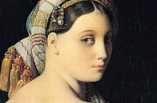
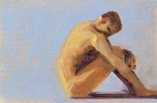
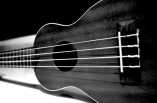

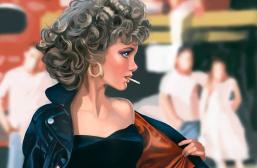
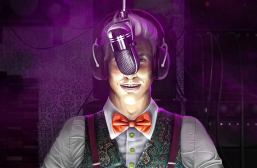
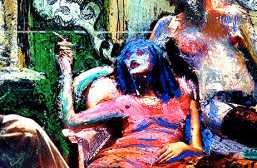
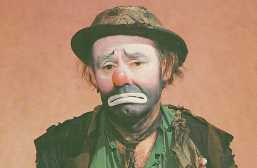

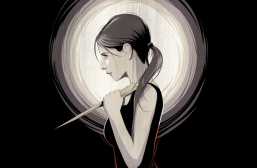
For some strange reason Simon and Garfunkel songs always conjure up an image of late 60s hippie-ish girls dressed in long flowery dresses while sitting in lonely bedsits on one of those big floor cushions.
I had the privilege of seeing S&G three times, all in the 60’s, all in Chicago. The first show, summer of `66, the place was only 65% filled. They played a new song, Dangling Conversation – I loved it, but it was a little too highfalutin to ever make a hit single – `And I only kiss your shadow – I cannot feel your hand – you’re a stranger now unto me – lost in the dangling conversation and the superficial sighs in the borders of our lives.’ The other two shows – July and December, `67 – were packed. Garfunkel still has the most ethereal pipes I’ve ever heard.
These boys wrote some truly beautiful songs but, like Bob Dylan, they were very much of their time. “A time of innocence”.
These songs are timeless. They’re not rooted in any ’60s idealism or misguided hippie peace ‘n’ love bullshit..they contain multitudes and universal themes of loneliness and lost love..emptiness and harmony..and you can’t confine Bob Dylan to the same period Simon&Garfunkel worked in either..the ’60s was merely the first decade of a career that’s still astonishing and creative.
I was just listening to them on youtube. Gorgeous melodies and harmonies. Not to mention poetic lyrics, written, what, 50 years ago? And still relevant today.
I have a real soft spot for El Condor Pasa and At the Zoo, although I think if I’d first heard them at my current, more advanced age I would have thought them laughable!
For some reason, EL Condor Paza reminds me of Scarborough Fair. Its undescribable
S&G’s version of “El cóndor pasa” is evidently inferior to the original.
The American Beatles, brilliant songs with beautiful lyrics.
Beatles that made it to America.
Respectfully, I would place S&G’s lyrics above those of the Beatles.
I don’t think it’s an exaggeration to say that there are only a handful of people in popular music who have sustained quality over several decades as Paul Simon has in his songwriting.
In all honesty, I’m a little surprised you didn’t mention the song “I Am A Rock.” It seems to me to be all about alienation.
I felt that that song was speaking about self-imposed isolation following a rejection. Will check it out, though. Thanks for the suggestion.
Paul Simon was a magnificent storyteller.
Making love in the afternoon with Cecilia
up in my bedroom
I got up to wash my face
when I come back to bed someone’s taken my place
Poetry set to music.
The Only Living Boy in New York is my personal favorite of their work.
Stunner. Joe Osborn’s bass playing on that is amazing.
Everything But The Girl did a lovely version as well.
Have seen Paul Simon live in the open air. Great musician.
PS’s Concert in Central Park from 1991 with the Ryhthm Of The Saints tour band. Possibly the greatest live “rock” performance ever, and free, but tragically unavailable on DVD.
There was a time, back at the end of the 60’s, that my student friends and I couldn’t stand Simon And Garfunkel. They seemed to represent all that was dull, pretty, and unexciting about chart music. We felt that every “uncool” home you went in had at least one S and G album, even if they only had half a dozen records in total ! And their music seemed to be played endlessly on the radio.
At college, the Head of Entertainments arranged a trip to the Albert Hall to see S and G. I was on the Ents committee too, and the Head felt it sent out a bad message if I didn’t join them ! He said that he was so sure I’d enjoy it, he’d refund the price of the ticket if I didn’t. So, reluctantly, I went with them.
What a shock I got ! Just two guys, one guitar, and a piano now and again. I’d never seen such an outstanding , professional performance before. For me, hearing all the songs without the backing band was a revolation. They were absolutely stunning.
No, I didn’t go out and buy all the albums, and I never became a serious fan. But I learned, as a young student, not to “judge books by the cover”, and to respect musicianship even if the music was not to my taste.
Sweet story, thanks for the read.
In my opinion Paul Simon is the greatest songwriter of our time, and yet some of his most popular songs really get on my nerves. Namely Cecilia and The Sound of Silence.
I remember a BBC radio documentary years ago when Art was audibly on the verge of tears when he told of discovering that So long, Frank Lloyd Wright was Paul’s kiss-off song to him… after he’d recorded the vocals. And Paul’s ruthless agreement: ” Artie studied architecture. Obviously it was about him. How could he be so slow.”
My favourite has always been So long, Frank Lloyd Wright. I don’t know why.
Their songs never grow old. Career amounts to the loveliest song cycle of our times, and it’s astonishing to think they coincide with Dylan and Cohen at the height of their powers. But who is greater over the longue duree, Cohen or Simon? Both do brilliant stuff in the 80s.
The Only Living Boy In New York is simply one of the finest songs ever written. I heard it for the first time when I was a little 9 year old boy and I remember it moved me deeply, especially the singing of what sounded like a heavenly choir. The song can still send shivers down my spine. If music can do that to you, it’s not just music. It’s art.
I am think I am living in the sixties. I would have loved live in the sixities.
The sixities will always be like my surfing dreams.
Out or reach.
S&G made the most exquisite folk pop music and it’s testament to their vocal and lyrical genius that no duo has come close to their amazing songs in 50 years.
Art Garfunkel is a musical dentist’s drill.
I could listen to Art Garfunkel’s voice all day. In fact, just the other day, I did with an all-Garfunkel playlist. Sublime.
In my opinion, the fact that we’re still talking about S&G’s catalogue of music nearly 60 years later speaks volumes. Thank you for this thoughtful article.
I appreciate the detail in analyzing the songs line by line. It’s chilling to think of confusion as just darkness. Most of the time I think we tend to associate confusion with quantifiable chaos–think of how we’re digitally bombarded every day. Confusion as darkness though really conveys the paranoia, frustration, and sadness in The Sound of Silence.
Hopefully there will be a reunion soon.
A good essay. I always enjoyed Simon and Garfunkel and your essay adds to thinking about their songs as I listen.
Simon and Garfunkel are definitely a duo who can be considered poets as well as musicians. Thanks for the read!
I enjoyed how you analysed these two songs from the great Simon and Garfunkel and pulled out the issues at hand, issues one might argue are ruling in the lives of many. Although this 60s powerhouse has seen success, they are still able to connect to the common person when it comes to personal troubles in the big, scary world.
In a sense music was to the ‘60s as literature (poetry particularly) was to the Romantic Era.
I think we are constantly playing out the aftermath of the Romantic moment in all forms of art.
Simon and Garfunkel are unique in their art because they create music, lyrics , poetic narrative and emotions with such intellectual power compared to other artists who are equally expressive but less refined. I do not consider Simon and Garfunkel high-brow. I consider them thoughtful.
Great translation!